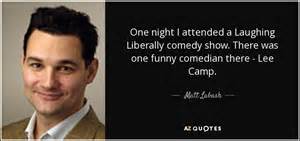A Quote by Roger Ebert
In my reviews, I feel it's good to make it clear that I'm not proposing objective truth, but subjective reactions; a review should reflect the immediate experience.
Related Quotes
The problem is one of opposition between subjective and objective points of view. There is a tendency to seek an objective account of everything before admitting its reality. But often what appears to a more subjective point of view cannot be accounted for in this way. So either the objective conception of the world is incomplete, or the subjective involves illusions that should be rejected.
Reviews are all bullshit, because they always change. When House of 1000 Corpses came out, all the reviews were awful. It was impossible to find a review better than "The worst movie ever made." And now I'll see more-modern magazines, and sometimes they'll re-review things, and I'll read this great review for it. It's the same thing with White Zombie! People talk about "Oh, White Zombie, these classic records. Why don't you do them now?" Everyone hated those records when they came out! The reviews were terrible.
Writers are funny about reviews: when they get a good one they ignore it-- but when they get a bad review they never forget it. Every writer I know is the same way: you get a hundred good reviews, and one bad, andyou remember only the bad. For years, you go on and fantasize about the reviewer who didn't like your book; you imagine him as a jerk, a wife-beater, a real ogre. And, in the meantime, the reviewer has forgotten all about the whole thing. But, twenty years later, the writer still remembers that one bad review.
We've created this cottage industry in which it pays to be un-objective. It pays to be subjective as much as possible. It's a great way to have your cake and eat it too. Criticize other people for not being objective. Be as subjective as you want. It's a great little racket. I'm glad we found it actually.



































